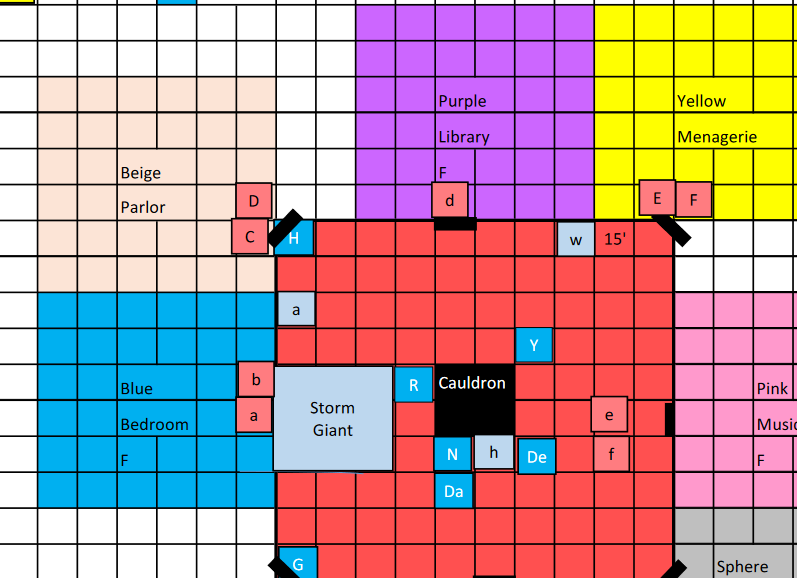Wretch wrote: ↑
December 14th, 2023, 15:24
I’m actually a lot more interested to know how people prefer to play in the sense of do they use a lot of physical visual representation and minis with a grid and basically play it out like a turn based tactics game. Do they do more of what I think people call theatre of the mind and focus more on descriptions and allow their players more freedom?
A grid doesn't hinder freedom, it
enables it. Theater of the mind is all well and good in situations where exact positioning and timing don't matter, but in most combat situations they matter a great deal, and without a grid it's hard to keep everybody on the same page. By putting everyone on the grid, both the players and the GM are able to see exactly what is and isn't possible; without the grid, combat tends to become a boring, wishy-washy affair in which players are uncertain who is where, what actions are feasible, and what's going on in general. Tactical and lateral thinking both require a detailed grasp of the situation to be exercised properly.
The only reasons to forgo the grid are if the system doesn't support one - in which case I would suggest a different system, as systems without tactical combat tend to be rules-lite slop - or one's group doesn't enjoy combat in any form - in which case I would question the choice of roleplaying, which is a form of wargaming, as a hobby.
Also, to address the implication in your question: it's a fundamental error in thinking, propagated by the nuRPG crowd, to believe that rules and descriptivity/freedom are opposed. The opposite is true in all cases. The essence of an RPG is that it simulates a fictional world. By necessity, then, every bit of 'fluff' is a rule and every rule represents 'fluff': they are one and the same. If a rule does a poor job of simulating an aspect of your, or any, gameworld, the issue is not that there
is a rule - if there weren't a rule, you'd end up needing to make one yourself- but that it's a bad one. In the words of Alexander Macris, author of ACKS: "Rules-light games are just games that haven't been played a lot yet."
I do, or did, because I no longer live near any of my friends who play. Online play has its ups and downs. Virtual tabletops have many conveniences and looking up rules in PDFs is quick. You can easily incorporate nice looking art, tokens, handouts etc. into your games. Some people play thematically appropriate background music. Actually, one of the downsides to online play is that all the cool things you can include in a digital tabletop can begin to feel like a necessity and then a burden if you become obsessive.
Some people say that online play isn't real tabletop, but I disagree. It mainly comes down to your group. My friends and I had a great time with it. On the other hand, I've also played in many abortive campaigns with strangers. Finding reliable people with whom to play is by far the worst part of playing online. GMs tend to quit at random and players tend to get bored and ghost the campaign. I think many people enjoy the idea of playing in a game more than actually playing.
Accepting the blogger's categories as is, I've played in Trad, neo-Trad, and Storygames. I don't prefer any of them. Storygames aren't RPGs and should not be classified as one of the cultures of play thereof.
@rusty_shackleford is absolutely right that simulationism is the only proper approach to RPGs. On that note, check out some of
these articles the ACKS author wrote on the topic.











